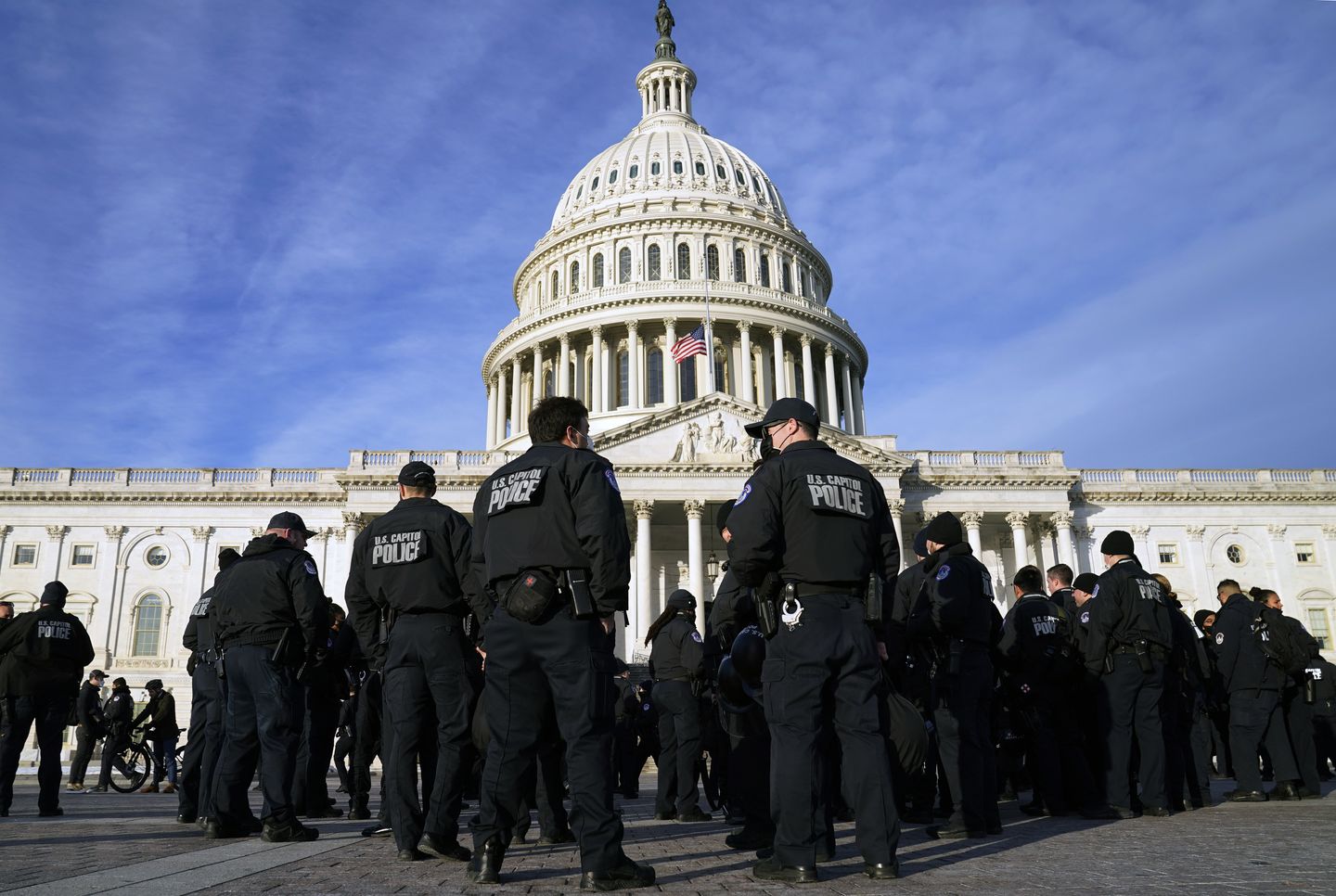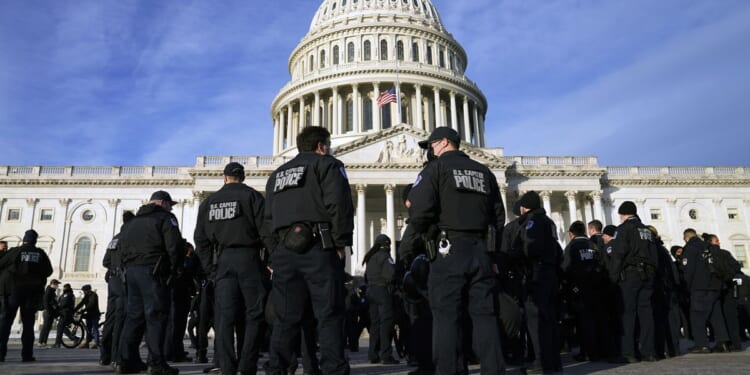
U.S. Capitol Police present at the Jan. 6, 2021, Capitol riot told the Supreme Court on Wednesday that ruling in favor of former President Donald Trump would bolster his claims that his challenging the 2020 election results was protected by the First Amendment.
A group of current and former officers who have sued Mr. Trump and others over their Jan. 6 actions told the justices, who are deciding the Colorado ballot-access case, that the former president has tried to say that directing his supporters to march to the Capitol is protected by the First Amendment.
“Mr. Trump now claims that the First Amendment shields him from any responsibility for the consequences of his actions. There is no reasonable reading of the First Amendment that confers freedom to engage in insurrection,” the group wrote in its high court brief.
“January 6 marked the violent culmination of a months-long course of conduct designed to secure Mr. Trump’s hold on power despite his defeat in the 2020 presidential election,” the officers said.
Though the brief doesn’t discuss details of the insurrection clause, which Trump critics cite as keeping him from appearing on ballots in Colorado and elsewhere, it was filed in support of the Colorado voters who successfully cited that constitutional provision to remove him from the 2024 presidential-primary ballot.
Mr. Trump successfully petitioned the U.S. Supreme Court to hear the legal battle after Colorado’s highest court said his Jan. 6 conduct was participation in an insurrection and, thus, he was ineligible to hold federal office under the 14th Amendment.
In his filing, Mr. Trump noted that efforts are underway in more than a dozen states to remove him from the 2024 ballot.
A ruling from the high court could come soon after oral arguments, given the time-sensitive nature of the dispute amid the primary schedule ongoing in several states. Arguments are slated for Feb. 8.
A quick decision is not unprecedented. The high court was able to decide Bush v. Gore in 2000 in just days, issuing its opinion the day after oral arguments were held.
The Colorado Supreme Court‘s decision was the first major ruling on the question to go against Mr. Trump. Maine’s Democratic secretary of state, Shenna Bellows, also tried to remove the former president from ballots, using the same legal justification.
The move was put on hold by a state court, and Maine’s top court said it would wait for the Supreme Court’s decision in the Colorado case before hearing Ms. Bellows’ appeal.
The Colorado justices, for the majority, acknowledged they were breaking new legal ground. But they said their reading of the U.S. Constitution indicated Mr. Trump was part of an insurrection that saw a pro-Trump mob delay counting of the Electoral College votes on Jan. 6, 2021.
Though Mr. Trump is facing dozens of criminal charges in separate cases, he has not been charged or convicted of insurrection during the U.S. Capitol protest.
Those hoping to remove Mr. Trump from state ballots point to the Constitution’s clause, which reads: “No person shall be a Senator or Representative in Congress, or elector of President and Vice-President, or hold any office, civil or military, under the United States, or under any State, who, having previously taken an oath, as a member of Congress, or as an officer of the United States, or as a member of any State legislature, or as an executive or judicial officer of any State, to support the Constitution of the United States, shall have engaged in insurrection or rebellion against the same, or given aid or comfort to the enemies thereof.”
The provision was written into the 14th Amendment shortly after the Civil War, but the former president’s opponents say it applies to his attempts to stop certification of President Biden’s victory.

